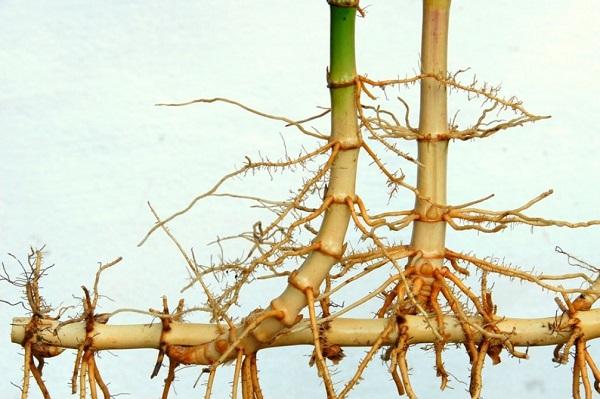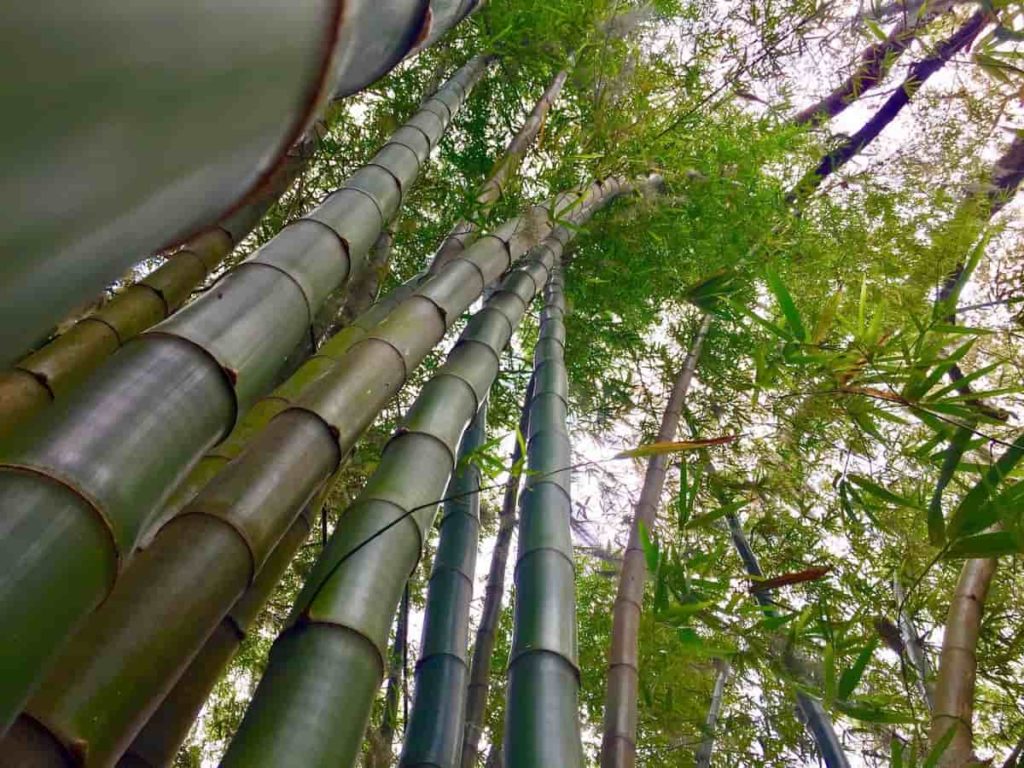Unlocking the Secrets of Healthy Bamboo Roots
Soil quality plays a vital role in the growth and development of bamboo plants. The roots of bamboo are responsible for absorbing essential nutrients and water, making them the foundation of a thriving plant. Without the right soil, bamboo roots can struggle to access the necessary resources, leading to stunted growth and weakened plants. The best soil to grow bamboo should provide optimal conditions for root development, allowing plants to reach their full potential. By understanding the importance of soil quality, gardeners can take the first step towards cultivating robust and resilient bamboo plants. In fact, selecting the right soil can make all the difference in promoting healthy root growth, increasing plant vigor, and reducing the risk of disease and pests.
How to Choose the Perfect Soil for Your Bamboo
Selecting the right soil for bamboo growth is a crucial decision that can make all the difference in the health and vigor of your plants. When evaluating soil options, there are several key factors to consider. First, pH levels play a critical role in determining the availability of essential nutrients for bamboo growth. A slightly acidic to neutral soil pH, ranging from 6.0 to 7.0, is ideal for most bamboo species. Additionally, nutrient content is a vital consideration, as bamboo requires a balanced diet of nitrogen, phosphorus, and potassium to thrive. Soil drainage is also essential, as waterlogged soil can lead to root rot and other problems. By understanding these key factors, gardeners can make an informed decision when selecting the best soil to grow bamboo. Look for soils that are specifically formulated for bamboo growth, and consider factors such as organic matter content, microbial activity, and nutrient availability. With the right soil, you can create an optimal environment for your bamboo plants to flourish.
The Role of Organic Matter in Bamboo Soil
Organic matter plays a vital role in creating a thriving environment for bamboo growth. By incorporating organic matter into the soil, gardeners can improve soil structure, increase nutrient availability, and enhance microbial activity. This, in turn, promotes healthy root development, stronger stems, and more vibrant foliage. Some of the best sources of organic matter for bamboo soil include compost, well-rotted manure, and peat moss. These materials not only add nutrients to the soil but also help to retain moisture, reduce soil temperature fluctuations, and support beneficial microorganisms. When selecting the best soil to grow bamboo, look for products that contain a high percentage of organic matter. This will help to create a nutrient-rich environment that supports the growth and development of healthy, thriving bamboo plants. Additionally, consider adding organic matter to your existing soil through regular amendments, such as compost tea or worm castings, to maintain optimal soil health and fertility.
Top Soil Recommendations for Bamboo Enthusiasts
When it comes to selecting the best soil to grow bamboo, there are several popular options to consider. Miracle-Gro, Black Kow, and E.B. Stone Organics are three well-known brands that offer high-quality soil products suitable for bamboo growth. Miracle-Gro’s Organic Choice Garden Soil is a popular choice among gardeners, offering a blend of natural ingredients that promote healthy plant growth. Black Kow’s All Purpose Potting Mix is another top contender, featuring a unique blend of peat moss, vermiculite, and perlite for optimal drainage and aeration. E.B. Stone Organics’ Bamboo & Succulent Mix is a specialized product designed specifically for bamboo and succulent plants, offering a well-balanced blend of nutrients and organic matter. When evaluating these products, consider factors such as pH levels, nutrient content, and drainage capabilities to ensure you’re selecting the best soil for your bamboo plants. By choosing a high-quality soil product, you can create an optimal environment for your bamboo to thrive.
Bamboo-Friendly Soil pH: Finding the Sweet Spot
Soil pH is a critical factor in bamboo growth, as it directly affects the availability of essential nutrients. Bamboo plants thrive in slightly acidic to neutral soils, with an ideal pH range of 6.0 to 7.0. Soils with pH levels outside this range can lead to nutrient deficiencies, reduced growth, and increased susceptibility to disease. Acidic soils (pH < 6.0) can cause aluminum toxicity, while alkaline soils (pH > 7.0) can lead to calcium and magnesium deficiencies. To adjust soil pH levels for optimal bamboo growth, test your soil regularly and apply lime or sulfur as needed. For example, adding dolomitic limestone can help raise the pH of acidic soils, while elemental sulfur can lower the pH of alkaline soils. By maintaining a bamboo-friendly soil pH, you can create an optimal environment for your plants to thrive. Remember, selecting the best soil to grow bamboo is crucial, and understanding the ideal pH range is a key factor in making an informed decision.
Nutrient-Rich Soil for Thriving Bamboo
When it comes to growing healthy bamboo, providing the right nutrients is crucial. Bamboo plants require a balanced diet of nitrogen, phosphorus, and potassium to thrive. Nitrogen promotes leaf growth and green color, phosphorus supports root development and flower production, and potassium enhances overall plant health and resistance to disease. To ensure your bamboo plants receive these essential nutrients, consider using soil amendments and fertilizers specifically formulated for bamboo growth. Organic matter such as compost, manure, or peat moss can also provide a slow release of nutrients, promoting healthy plant growth. Additionally, consider using a balanced fertilizer with a ratio of 10-10-10 (nitrogen-phosphorus-potassium) to provide a boost of nutrients. By selecting the best soil to grow bamboo and providing the necessary nutrients, you can create an optimal environment for your plants to thrive. Remember, a nutrient-rich soil is essential for healthy bamboo growth, and with the right combination of nutrients, your plants will flourish.
Soil Drainage and Aeration for Happy Bamboo Roots
Proper soil drainage and aeration are crucial for healthy bamboo growth, as they directly impact the health of the roots. Waterlogged soil can lead to root rot, reducing the plant’s ability to absorb essential nutrients and water. On the other hand, well-draining soil allows roots to breathe and absorb oxygen, promoting healthy growth. To improve soil drainage, consider adding organic matter such as compost or perlite, which can help break up clay soils and improve water flow. Additionally, incorporating a layer of mulch or gravel can enhance soil aeration and reduce waterlogging. When selecting the best soil to grow bamboo, look for products that prioritize drainage and aeration, such as those with added perlite or vermiculite. By prioritizing soil drainage and aeration, you can create an optimal environment for your bamboo plants to thrive. Remember, happy roots lead to healthy, strong bamboo plants, and the right soil can make all the difference.
Conclusion: Growing Strong and Healthy Bamboo with the Right Soil
In conclusion, selecting the best soil to grow bamboo is a crucial step in cultivating strong, healthy plants. By understanding the importance of soil quality, pH levels, nutrient content, drainage, and aeration, you can create an optimal environment for your bamboo to thrive. Remember, the right soil can make all the difference in promoting healthy root growth, increasing nutrient uptake, and supporting overall plant health. Experiment with different soil options, and don’t be afraid to try new approaches to find the perfect blend for your bamboo plants. Share your experiences and learn from others in the bamboo-growing community to continue optimizing your soil and growing strong, healthy bamboo. With the right soil and a little patience, you’ll be enjoying the many benefits of bamboo in no time.







